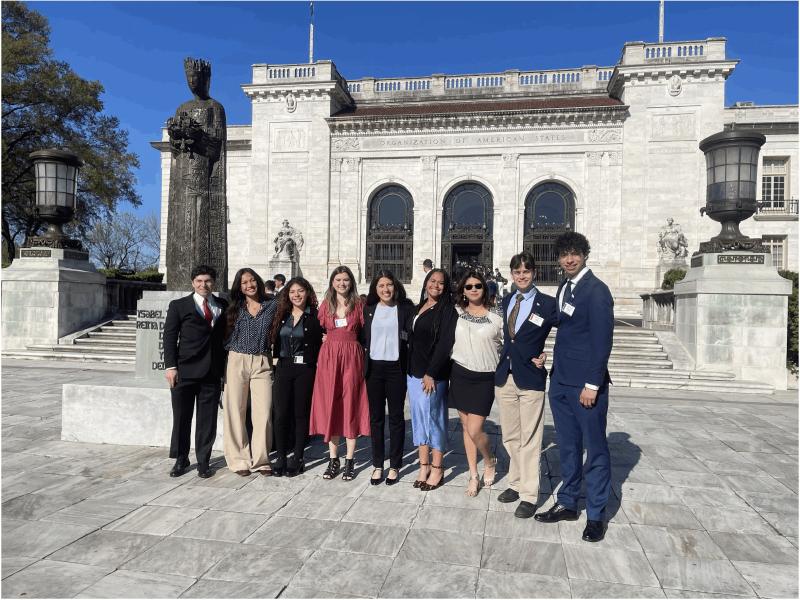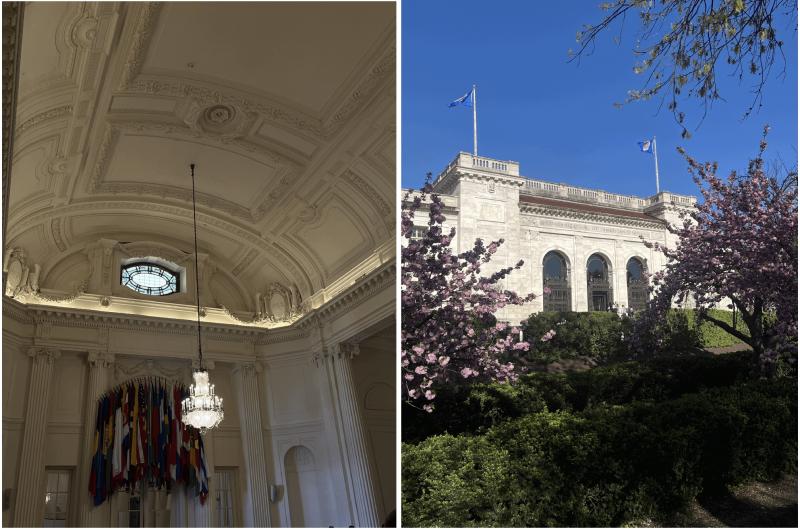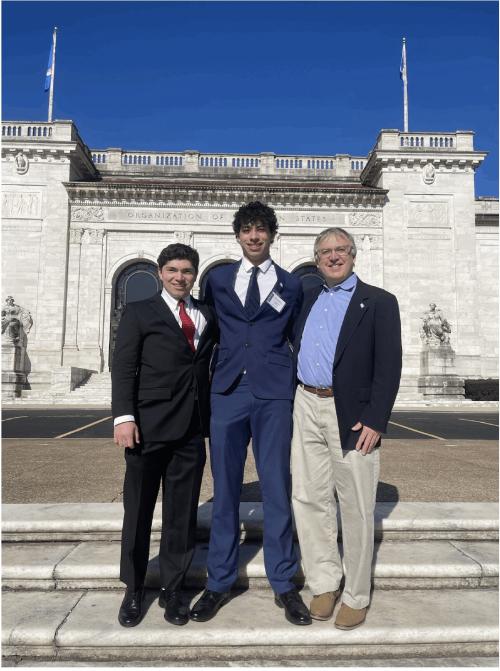Bridging Nations and Building Resolutions: Inside the Washington Model OAS
Last month, a group of Tulane students traveled to Washington, D.C., to participate in the Washington Model OAS, an academic simulation where college students experienced how the Organization of the American States General Assembly works. Among the Tulane delegation was Hector Rosales, a first-year student, pursuing a double major in Public Health and Political Science with a concentration in International Relations, and a minor in Latin American Studies. In this article, he shares his reflections on the experience.

This April, I had the extraordinary privilege of representing Tulane University and the Delegation of Argentina at the 2025 Washington Model Organization of American States (WMOAS). Over the course of five transformative days, I served on the Third Committee on Integral Development, stepping into the role of diplomat to address the complex and pressing challenges facing the Americas today. As one of the most distinguished and immersive simulations of the OAS General Assembly, WMOAS brought together university students from across the Western Hemisphere to engage in high-level debate, draft innovative policy proposals, and collaborate on multilateral solutions that mirror the intricacies of real-world diplomacy and governance.
Representing Argentina, I co-drafted and advocated for a Preliminary Draft Resolution (PDR) entitled “Incorporating People with Disabilities into the Development Process,” which sought to embed accessibility, equity, and inclusion into the core of national and regional development agendas. The resolution emphasized the necessity of integrating disability-inclusive frameworks into economic and social policies, advocating for improvements in educational access, equitable employment opportunities, accessible infrastructure, and meaningful civic participation for people with disabilities. Grounded in the principles of dignity, justice, and opportunity, our proposal aimed to uplift communities historically marginalized and to ensure that development in the Americas is truly inclusive.
Each committee session was a crucible of ideas, a place where diplomacy was not simply practiced, it was experienced, negotiated, and internalized. From early morning strategy briefings with fellow delegates to late-night amendment drafting and negotiations, every moment demanded intellectual rigor, strategic thinking, cultural sensitivity, and a deep commitment to consensus-building. I had the wonderful opportunity to engage with students from Colombia, which offered a profound reminder of the richness that diverse global perspectives bring to exchange. One particularly impactful conversation centered on a student's experience growing up in a post-conflict region, where she spoke eloquently about the transformative power of education and civic engagement in rebuilding fractured communities. Her insights compelled me to reflect more deeply on my own assumptions and inspired me to approach international discourse with greater empathy, nuance, and purpose.
One of the defining highlights of the week was conducting a formal committee session within the historic headquarters of the Organization of American States itself. Sitting beneath the flags of member nations in that iconic chamber imbued our debates with a sense of gravity and historical continuity, reminding us that diplomacy is both a timeless institution and a living process, one we were being entrusted to carry forward.

Behind this transformative experience lay months of careful preparation. Prior to arriving in Washington, our Delegation devoted extensive time to researching Argentina’s domestic and foreign policy, analyzing relevant development frameworks, and studying the nuanced mechanisms of the OAS. I collaborated closely with my delegation to rehearse our arguments, refine our proposals, and prepare for the dynamics of formal parliamentary procedure. Throughout this process, I gained not only a deeper understanding of Inter-American affairs but also an appreciation for the hard work, humility, and adaptability required to thrive in diplomatic settings.
The team I worked with, brilliant, driven, and compassionate individuals, became not only trusted partners but also close friends and sources of inspiration.
Beyond the committee room, WMOAS offered something equally valuable: a space for meaningful cross-cultural exchange, authentic moments, and lasting connection. Whether through elevated conversations shared over meals, debates between sessions, or reflective discussions late into the night, the moments I spent with fellow delegates revealed a powerful sense of shared purpose. We were all united in our desire to imagine and build a more cooperative, equitable, and sustainable future for the Americas. The diversity of thought, discipline, and background among participants made our exchanges richer, and reminded me that diplomacy is as much about human connection as it is about policy.
I am profoundly grateful to Professor Huck and the Stone Center for Latin American Studies for their unwavering support, mentorship, and belief in the transformative value of experiential global learning. Their guidance not only made my participation in WMOAS possible but also enriched my academic and personal growth in countless ways. I am equally thankful to my fellow delegates, whose dedication to excellence and spirit of collaboration made our presence in Washington both impactful and unforgettable.
I return from WMOAS not only with a renewed passion for public service, but also with a heightened awareness of the responsibilities that come with engaging in global problem-solving. I now carry with me a deeper understanding of the delicate art of multilateral diplomacy, the value of inclusive policy making, and the enduring power of cooperation in the face of shared challenges. As I continue my studies and professional journey, I remain committed to advancing the principles that animated our work in Washington: equity, dialogue, accountability, and unity across borders. These lessons will continue to guide me as I seek to serve, lead, and build bridges across communities, both within the Americas and on the global stage.

